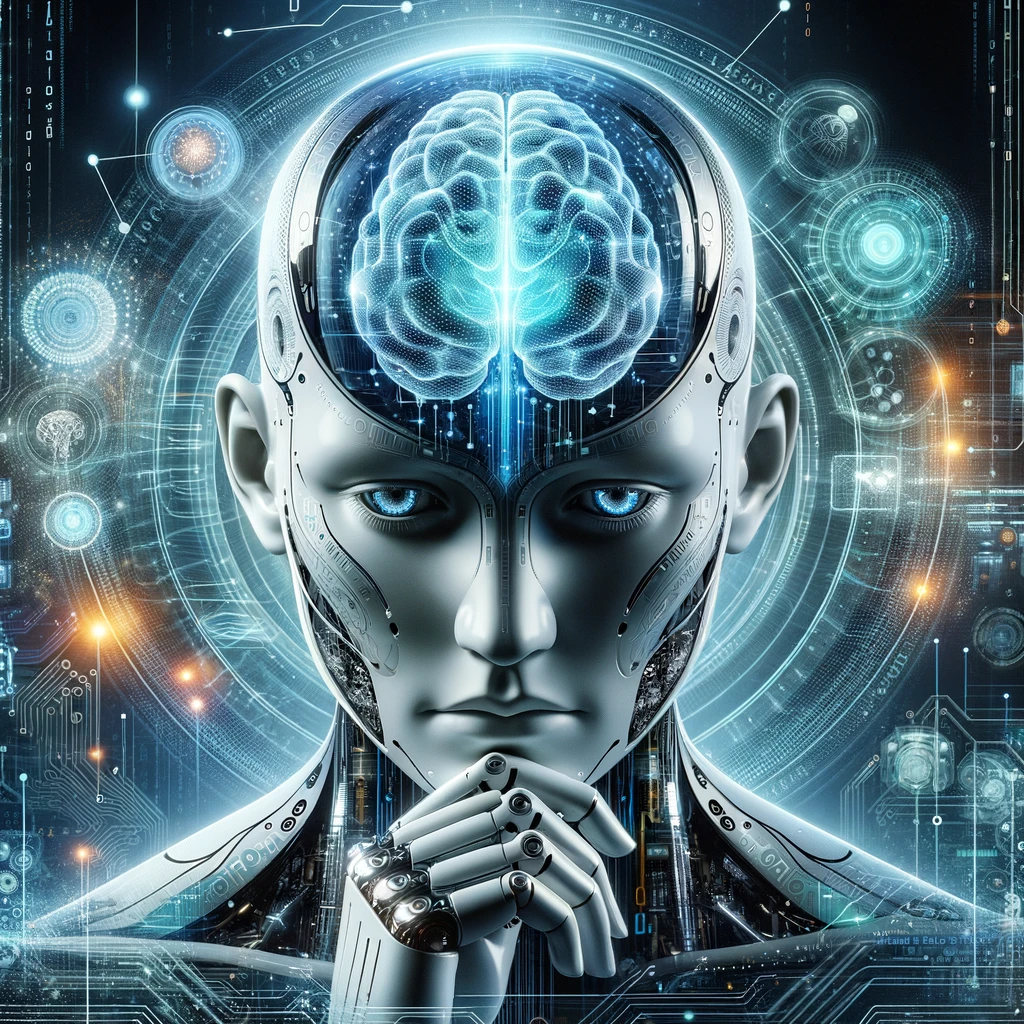The journey to discover “who created artificial intelligence” is a fascinating exploration of visionary minds and technological advancements that have shaped this dynamic field. From its philosophical roots to modern applications, the history of artificial intelligence (AI) is a testament to humanity’s innovative spirit.
navegue pelo conteúdo

Philosophical and Scientific Foundations of AI
Before we delve into the modern era of artificial intelligence, it’s crucial to acknowledge the philosophical and scientific foundations that paved the way. Philosophers like Aristotle and Descartes explored concepts of reasoning and mechanical mind, anticipating questions that would become central in AI. In the 19th century, mathematicians like George Boole and Ada Lovelace contributed theories and ideas that would become fundamental to the development of computing and, by extension, artificial intelligence.
After all, who created artificial intelligence?
Alan Turing, often regarded as the father of computer science, played a pivotal role in AI’s history with his 1950 paper “Computing Machinery and Intelligence.” The Turing Test he proposed remains a landmark in the debate over machines’ capability to think. Turing’s contemporaries, such as John von Neumann, also made significant advancements in computer architecture, which would become vital for AI’s future development.
The Formal Birth of Artificial Intelligence
The term “artificial intelligence” was officially coined at the 1956 Dartmouth Conference, an event organized by John McCarthy, Marvin Minsky, Nathaniel Rochester, and Claude Shannon. This event not only named the field but also brought together researchers who shared the common goal of creating machines that could simulate aspects of human behavior. This period marked the beginning of an era of optimism and significant investment in AI research.
Key Developments and AI “Winters”
In the decades that followed, those who contributed to creating artificial intelligence witnessed both notable advances and periods of disillusionment, known as “AI winters.” Despite the challenges, important innovations were made, including the creation of machine learning algorithms, knowledge-based systems, and the development of fuzzy logic and neural networks. Each of these innovations opened new possibilities for practical applications of AI.
The Deep Learning Revolution
The turn of the century brought significant advancements in processing power and the availability of large datasets, setting the stage for the deep learning revolution. Researchers like Geoffrey Hinton, Yann LeCun, and Yoshua Bengio were instrumental in advancing deep neural networks, which transformed AI’s ability to learn from complex data. This progress led to breakthroughs in image recognition, automatic translation, and autonomous vehicles, among many others.
Artificial Intelligence in Contemporary Society
Today, those who created artificial intelligence can see its impact in nearly every aspect of modern life. From virtual assistants like Siri and Alexa to advanced recommendation systems used by streaming platforms and e-commerce, AI has become an indispensable tool in the contemporary world. Moreover, AI is at the forefront of research and development in critical areas, including health, education, and environmental sustainability.
Ethical Challenges and the Future of AI
As AI continues to evolve, significant ethical and social questions arise. The debate over data privacy, algorithmic bias, and employment automation is intensifying. Furthermore, the prospect of advanced and potentially conscious AI raises profound philosophical questions about the nature of consciousness and identity. In this context, it’s essential that AI development is guided by rigorous ethical principles, ensuring the technology benefits society as a whole.
Conclusion About Who Created Artificial Intelligence
The history of “who created artificial intelligence” is a complex and multifaceted narrative filled with innovations, challenges, and promises. From the earliest theorists and mathematicians to the computing pioneers and today’s innovators, AI is the result of centuries of human curiosity, critical thinking, and the quest to understand and replicate our own intelligence. Looking forward, AI promises to continue revolutionizing how we live, work, and interact, representing one of the most exciting and challenging fields of human innovation.















Leave a comment